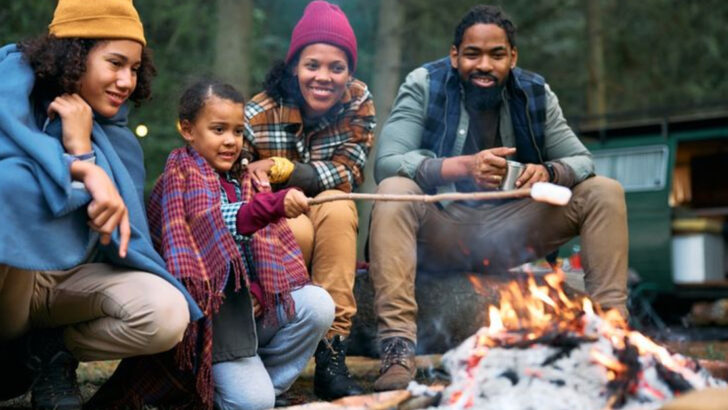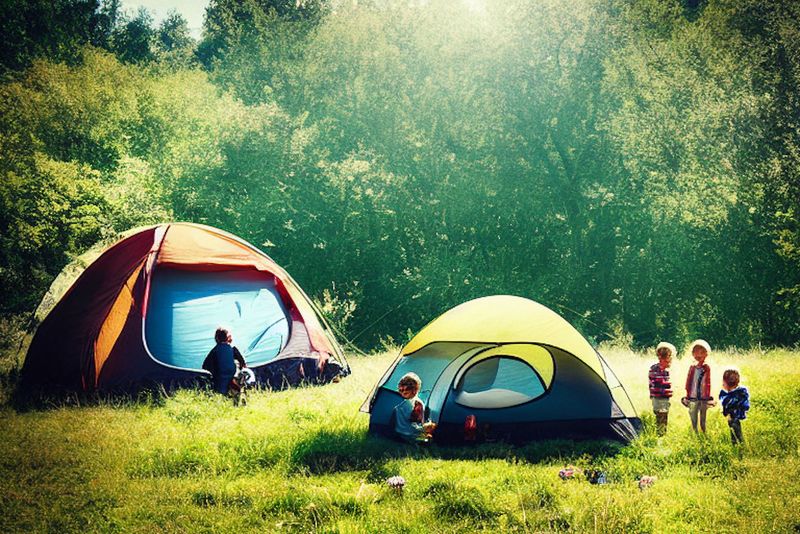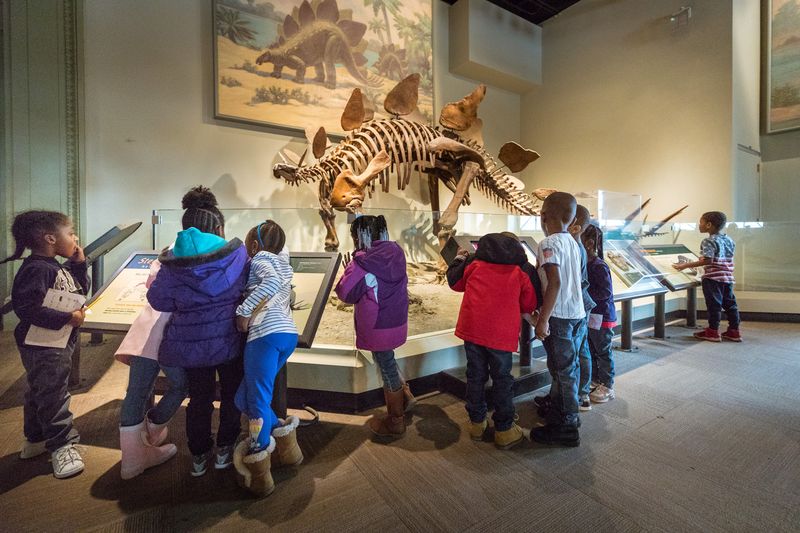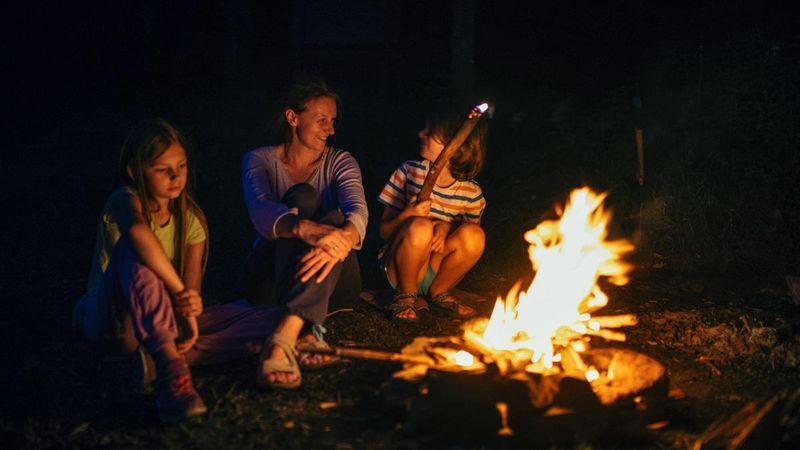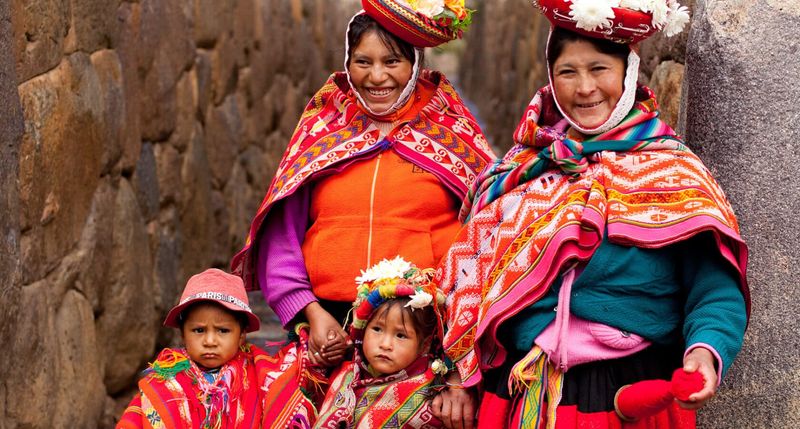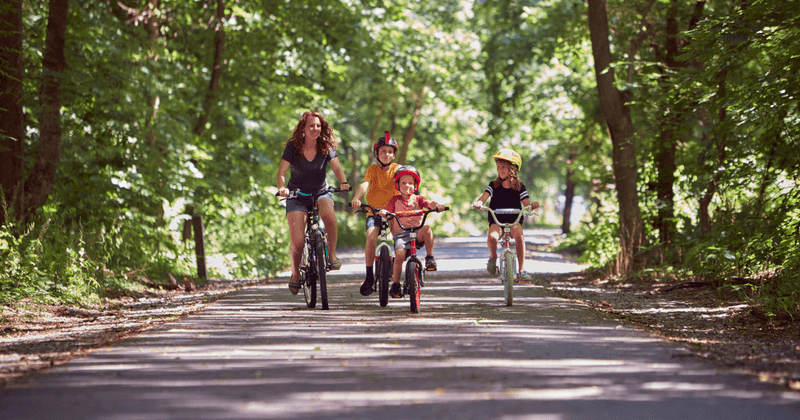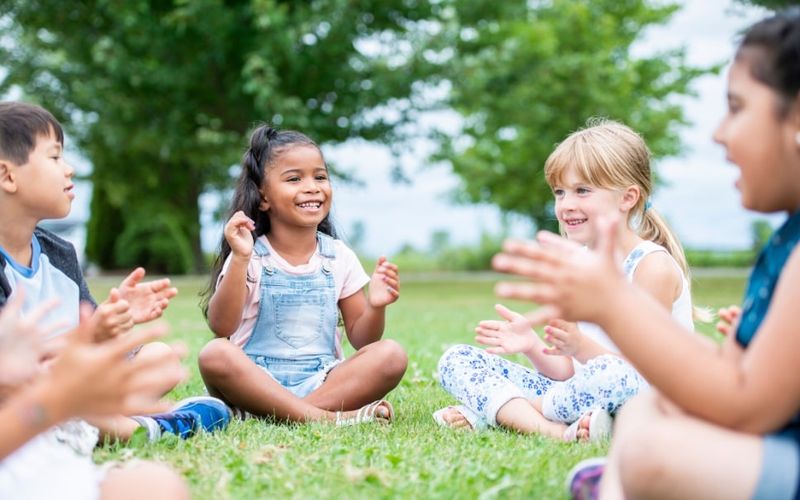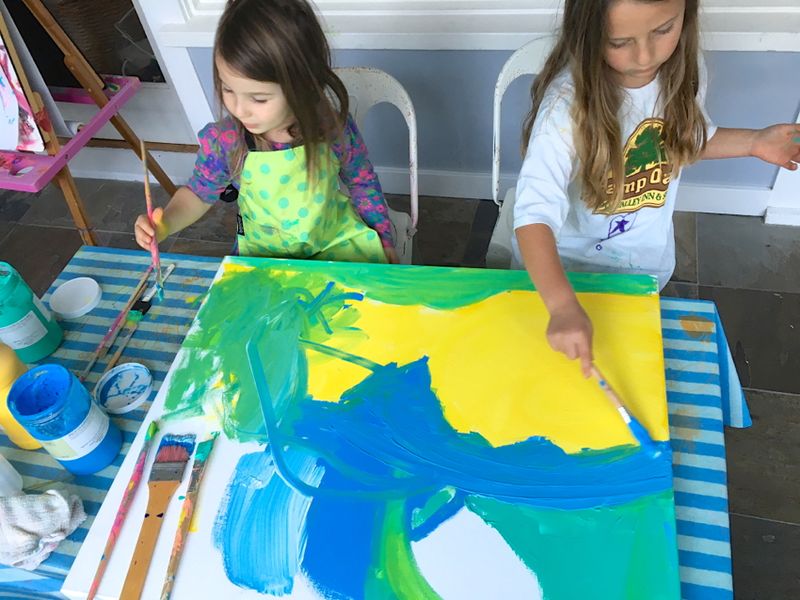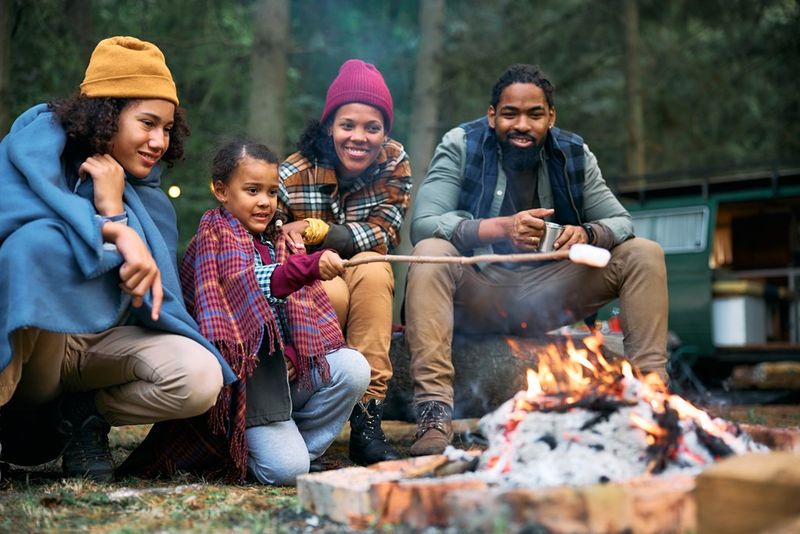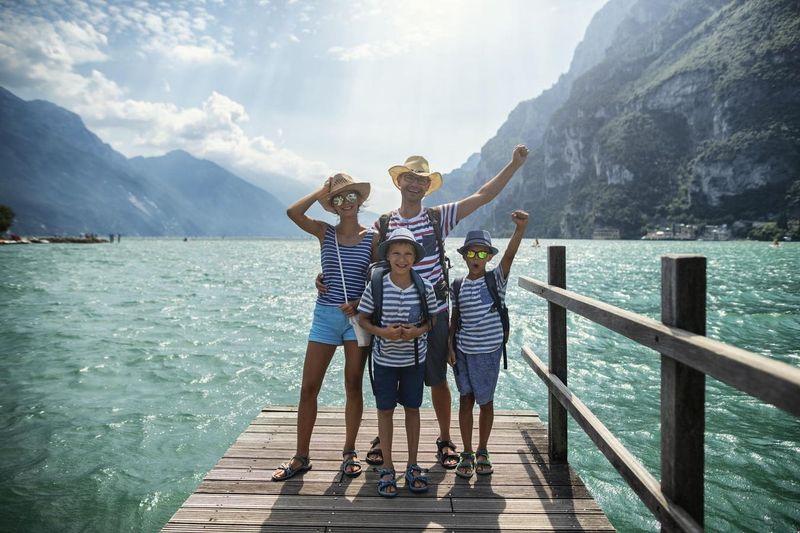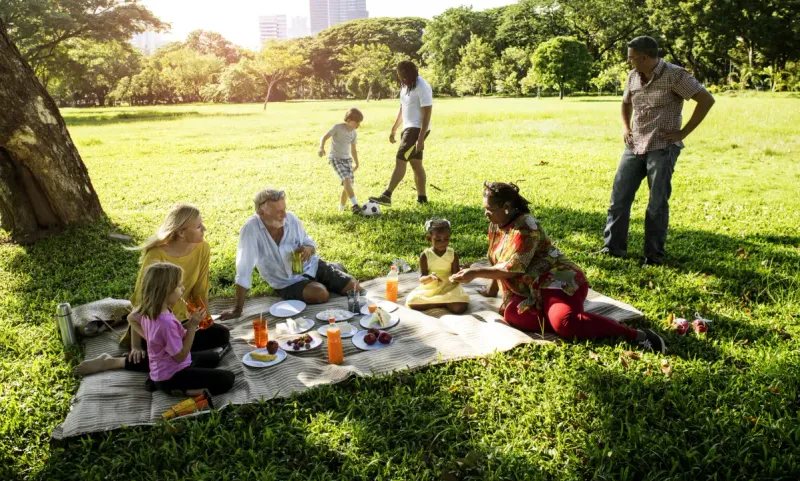Family vacations are more than just a break from routine—they’re a golden opportunity to strengthen connections, create lasting memories, and foster a sense of togetherness.
Going beyond the usual clichéd statements, family trips are unique avenues for learning, growth, and deep emotional bonds. In today’s fast-paced world, where distractions are plenty and time is scarce, the value of spending quality moments with loved ones cannot be overstated.
So, here are 15 significant benefits that make family vacations an essential part of life.
1. Strengthening Family Bonds
Imagine a place where time slows down, and it’s just you and your loved ones. That’s the magic of family vacations. Taking a break from daily routines allows families to truly connect. This is where bonds are strengthened and memories are forged.
Kids get to see their parents in a new light—relaxed and playful. Meanwhile, parents appreciate the little joys and quirks of their children. It’s a mutual exchange of love and understanding.
When families return home, they carry with them a renewed sense of closeness. The shared experiences become part of their story, a collection of moments to be cherished. This emotional investment pays off, creating a foundation that supports each member through life’s ups and downs.
2. Creating Lasting Memories
Memories made during family vacations are like treasures that grow more valuable over time. They are the stories that get told and retold, bonding family members across generations.
These are the moments that etch themselves into the heart, the snapshots that define a family’s journey together.
The memories aren’t just about the places visited but the experiences shared—trying new foods, learning about different cultures, or simply enjoying each other’s company. They become the anecdotes at family gatherings, the stories that delight and unite.
3. Educational Opportunities
Who said learning only happens in the classroom? Traveling introduces kids to diverse cultures, histories, and environments, expanding their horizons beyond textbooks.
Parents and kids explore together. Every trip becomes an educational adventure, sparking curiosity and wonder about the world. Children learn not just facts, but empathy and understanding. They see different ways of living and realize that the world is a vast, interconnected place.
Family vacations are a chance to teach kids responsibility and adaptability. Whether planning a day’s itinerary or learning a few words in a new language, these experiences equip them with skills that classroom education often misses.
4. Stress Relief and Rejuvenation
Life can be overwhelming, but these are a breath of fresh air. Imagine a mountain cabin, where the only schedule is laughter and relaxation.
The change in scenery provides a mental reset, where priorities shift from deadlines to playtime. These trips foster emotional well-being, as the absence of stress allows love and joy to flourish. It’s a time when parents rediscover fun and spontaneity, setting aside worries and embracing the moment.
Returning home, families feel renewed and closer. The memories of shared relaxation become a source of inspiration to maintain a more balanced lifestyle. Through these vacations, families learn the importance of taking time for each other and themselves, creating a happier, healthier family dynamic.
5. Improved Communication Skills
It’s around a campfire or during a long drive that real conversations happen. These moments help families express themselves and listen to each other in meaningful ways.
Navigating a new environment requires teamwork and dialogue. Whether deciding on a restaurant or figuring out directions, every decision becomes a team effort. This collaboration enhances communication skills in a natural, unforced manner.
These trips create a safe space for openness, where laughter and heart-to-heart talks coexist. When families return, they bring back improved skills in communicating, a gift that transcends the vacation itself. These enhanced interactions lead to lasting relationships, built on genuine connection.
6. Exposure to Diverse Cultures
Traveling opens the door to new cultures and experiences. These adventures teach children the beauty of differences and the importance of understanding others. They learn to appreciate traditions, food, and languages that differ from their own.
By experiencing life through different lenses, families develop a deeper appreciation for their own culture and others.
The lessons learned during these trips extend beyond geography, shaping values and worldviews. Family vacations ignite a passion for exploration and connection with the world.
7. Encouraging Physical Activity
Family vacations lead to outdoor adventures. Whether it’s hiking, cycling, or swimming, these experiences promote health and well-being. Kids see their parents enjoying this, inspiring them to be active too.
These activities aren’t just exercise; they’re opportunities for connection. Sharing a challenging hike or a fun swim creates shared memories. Families return home with a renewed commitment to an active lifestyle.
Being active during vacations also supports mental health, reducing stress and promoting relaxation. These trips remind everyone of the joy in movement and play.
8. Building Resilience and Adaptability
Every family vacation comes with its share of challenges—missed flights, unexpected weather, or getting lost in a new city. These moments, while stressful, are opportunities in disguise. These experiences build problem-solving skills and patience, traits that are invaluable in everyday life.
Children learn by watching their parents handle adversity with grace and humor. They discover that setbacks are part of the journey, not the end of it. This perspective fosters independence and confidence, preparing them for future challenges.
When families face obstacles together, they develop a can-do attitude that strengthens their bond. These lessons in resilience become stories of triumph, adding to the richness of family lore. Vacations become more than just a break—they become a training ground for life’s unpredictability.
9. Enhancing Social Skills and Confidence
Stepping into new environments broadens horizons. They provide the perfect setting for children to enhance their social skills by interacting with people from different backgrounds.
Such experiences boost confidence, as children step out of their comfort zones and try new things. They return home with a greater sense of self-assuredness, ready to face new social situations.
Parents too benefit from these interactions, as they connect with fellow travelers and locals. These exchanges enrich their lives, offering fresh perspectives and friendships.
10. Fostering Creativity and Imagination
Visiting new places and experiencing different cultures stimulate creative thinking in both children and adults.
Travel exposes children to new ideas and artistic expressions. They learn to see the world through a creative lens, finding beauty in the unfamiliar. This nurtures their imagination, encouraging them to dream big and think differently.
Parents, too, find themselves inspired, as they explore new ways of experiencing and interpreting the world. These artistic adventures become cherished family experiences, that builds a lifelong passion for creativity and exploration.
11. Teaching Independence and Responsibility
Picture teenagers gathered around a kitchen table, eagerly mapping out the day’s adventure. They’re not just passengers; they’re active participants, learning to navigate the complexities of travel.
This involvement builds confidence, as children learn to make decisions and solve problems. They realize that their choices have an impact, teaching them accountability and foresight.
Parents see their children grow in these roles, reassured by their budding maturity. The skills learned during these trips extend beyond the vacation, equipping them for life’s challenges.
12. Improving Academic Performance
Family vacations contribute to academic success, offering real-world learning experiences that textbooks can’t match. Travel stimulates curiosity and engagement, sparking a passion for knowledge. These experiences make education tangible and exciting.
Children return to school with rich perspectives, ready to explore subjects with newfound enthusiasm. They draw connections between classroom lessons and their travel adventures, enhancing their understanding and retention.
Parents notice their children’s growing interest in learning, a curiosity fueled by the wonders discovered during their travels. This becomes more than a break from routine. It’s the catalyst for academic achievement and a lifelong love of learning.
13. Creating Family Traditions
Traditions are the heartbeat of family life, and vacations are a perfect backdrop for creating them. Whether it’s an annual trip to the mountains or a spontaneous beach getaway, these rituals become loved family traditions.
As families grow, these traditions evolve, adapting to new members and changing interests. They serve as a constant in a world of change, a reminder of the love and continuity that bind family members together.
Family vacations are the setting for building shared history and creating a legacy of love and togetherness that lasts for generations.
14. Promoting Work-Life Balance
In the hustle of daily life, work often overshadows family time. Family vacations offer a chance to reset, promoting a healthier work-life balance. They remind us of the importance of being present, focusing on what truly matters.
Setting aside work for family time strengthens relationships and reduces burnout. It teaches children that family comes first, instilling values of love and connection.
Returning refreshed, parents find themselves more productive and content, having reconnected with their family. It’s a vital part of achieving balance, ensuring that life’s priorities are in harmony.
15. Valuing Experiences Over Material Possessions
In a world obsessed with material wealth, family vacations teach the true value of experiences. These trips are a reminder that the best things in life aren’t things—they’re moments shared with loved ones.
These experiences foster fulfillment and happiness that material possessions can’t provide. They teach children the joy of connection, the beauty of nature, and the richness of simple pleasures.
Family vacations become a celebration of what truly matters, creating bonds that endure and memories that last a lifetime. They offer a perspective shift, emphasizing that life’s greatest treasures are found in relationships and shared experiences, not in what can be bought or owned.

